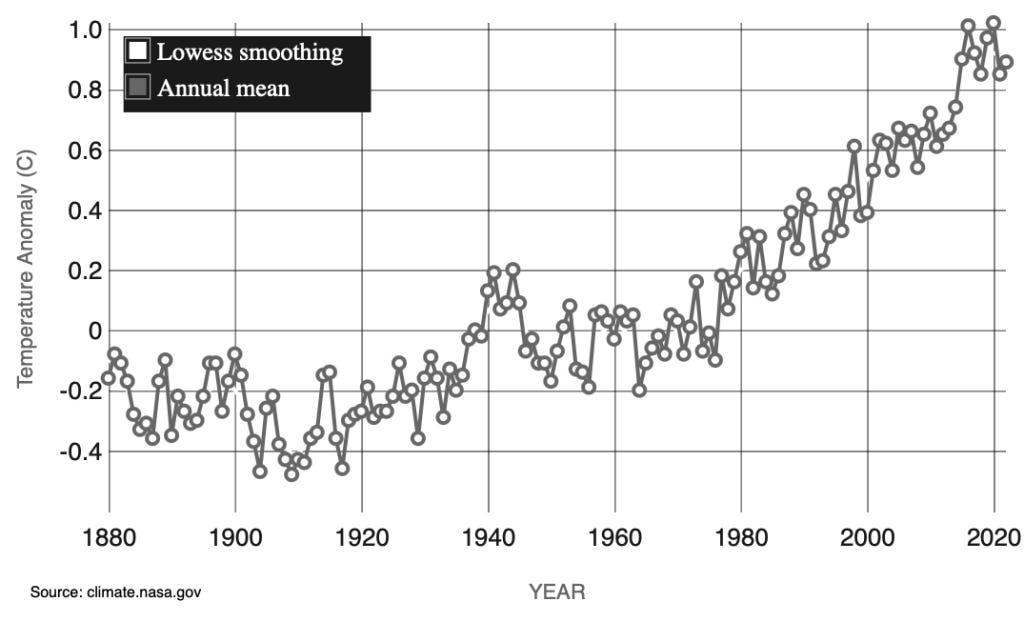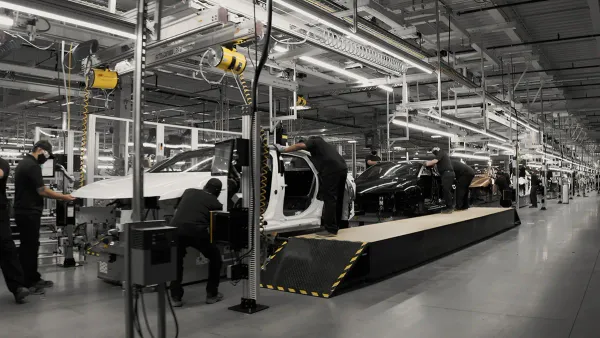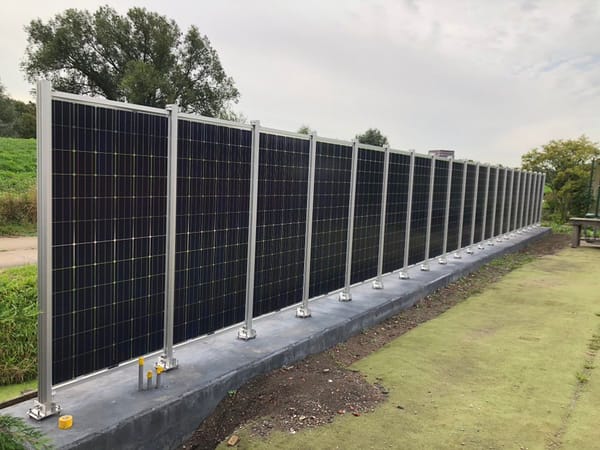Phoenix hits water limits; Climate negotiators pre-game in Bonn
This week and next is the important pre-meeting in Bonn, Germany, where staff meet to determine topics for COP28. And more than anything, money and financial responsibilities seem to be the key topics for this year.
Chart of the Week

NASA keeps a dashboard of climate indicators, and as of today, the globe is 1.1-degree Centigrade warmer than in pre-industrial times. Earth’s global temperature in 2020 tied with 2016 as the hottest year on record.
Bonn chance with COP28 negotiations!
While the next big climate Conference of the Parties (COP) is set for Dubai in the UAE in December, this week and next is the important pre-meeting in Bonn, Germany, where staff meet to determine topics for COP28. And more than anything, money and financial responsibilities seem to be the key topics for this year. Negotiator focus seems to be coming down on two areas in particular: Who is going to pay for poorer countries to go green and repair existing climate-related damage, and what exactly is a carbon credit and how much is it worth? Last year’s COP27 in Egypt concluded with an agreement to create a poor country climate reparations fund, but left unsettled how to fund it and criteria on who gets how much money under what circumstances. Meanwhile, multiple systems for managing carbon credits and their supposed value have sprung up across the globe, and some of the private systems for managing them have been challenged. It seems the UN is calling for a standardized, more regulated system.
- One study found the U.S. should pay $80 trillion in climate reparations.
- Last January, The Guardian and Die Zeit found the world’s largest carbon credit certifier was essentially selling fake credits.
U.N. agrees, carbon removal is urgent, let’s do it now
So here’s the set up: After a pandemic-era drop, carbon-dioxide levels this year had a near record surge. Things are getting worse, not better, so polluters, especially oil and gas companies, argue that to combat climate change, we should emphasize carbon removal, largely through large machines that will suck carbon out of the air, compress it, and then inject it into the ground, kinda like a reverse oil well. Originally cool to this idea, a U.N. panel signaled this week that they’re now on board with carbon sequestration, which is great, but we’re still far from deploying the technology at scale, since only a few dozen plants are operating, when what we need are thousands of the carbon capture and sequestration (CCS) systems running now, today, pronto. So, adding to our to do list: we need to reduce burning new carbon and then capture the stuff that’s already out there in order to halt global warming.
- Here’s a nifty explainer video from Grist on how CCS works.
- Canada is preparing to spend $9 billion on CCS…so its super dirty oil extraction systems won’t be so dirty.
Sources: Guardian / Washington Post
Can the Colorado River rise like Phoenix?
Last month Arizona, Nevada, and California announced a plan to reduce their draws on the Colorado River to keep the river flowing. Earlier this week Arizona got more bad water news, as a state-sponsored study found there is not enough groundwater to support further population growth in the desert terrain of the Phoenix area. To legally build, developers must prove they have access to 100 years of steady water supplies, and currently about 80,000 planned suburban homes have those designations, but the state report puts the kibosh on future development, about $1 billion worth of homes, some developers claim. More homes could be built if they pay to pipe water in from distant sources, a task that costs tens of millions of dollars per development.
- One of Phoenix’ biggest new projects are a series of semiconductor fabrication plants, which are especially water intensive.
- Further upriver, the Colorado is drying up. Silt build up in the Grand Canyon is killing fish and water levels in reservoir Lake Powell this spring were so low that the hydroelectric turbines couldn’t turn, raising regional electricity prices.
- Still, the Phoenix area has more people, but is using less water than in the past and the city is using a complex system to store water in underground aquifers.
Sources: Washington Post / Inside Climate News
Other Things Happened
- Following State Farm, Allstate announced this week that it will no longer offer new property insurance policies in California due to climate-driven disasters.
- Ford announced that future cars will use the same charging system as Tesla, giving them access to the 12,000 Supercharger network in North America.
- Globally, clean energy investment hit $1.4 trillion this year, as opposed to $1 trillion for fossil fuels.
- A Columbia Law School report found 293 renewable energy projects have been hung up by local NIMBY complaints.
- New research suggests the Arctic could be sea-ice-free in summers by 2030’s, a decade earlier than anticipated.
Here’s your end of the newsletter treat: A guy that uses AI to imagine celebrities as muppets. Make sure you scroll down to the one for Queen Elizabeth.





